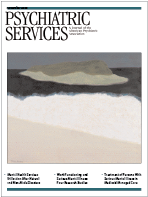PsychoBible: Behavior, Religion, and the Holy Book
Referring to the Torah, one talmudic rabbi commented, "Turn it, turn it, for everything is in it." What applies to the Torah might very well apply to the Bible. Armando Favazza, M.D., M.P.H., is most inclusive with his biblical topics. Under "Bible" in the index to PsychoBible: Behavior, Religion, and the Holy Book, there are 47 references covering topics as diverse as archaeology, faith healing, animals, homosexuality, feminism, and God's revelation. Although Favazza's wide embrace is stimulating, one is challenged to grasp exactly what the central organizing principle of PsychoBible happens to be.
Favazza, best known for his book on self-mutilation and body modification, Bodies Under Siege, is professor of psychiatry at the University of Missouri-Columbia Medical School and past-president of the Missouri Psychiatric Society. Some of Favazza's psychiatric insights are outstanding. For example, he poses the question, if homosexuality is an "abomination" as it is described in Leviticus 18:22, then why doesn't society show its outrage with equal fervor about other biblical abominations, such as men's trimming of their beards or wearing garments made of a mixture of linen and wool?
In addition, Favazza suggests that a person with a diagnosis of schizophrenia might find the imaginative images of the prophet Ezekiel most engaging, whereas a person with a diagnosis of depression might be more prone to focus on the sadness of the words of the prophet Jeremiah. Finally, Favazza's definition of borderline personality disorder is intriguing: "a diagnosis predominantly given to impulsive women whose emotional life is like a roller coaster and who have the uncanny knack of making both themselves and others miserable and constantly on edge." Favazza is at his best in his chapter on women and the Bible. His discussions of the historical mistreatment of women and the difficulty women have in dealing with biblical texts are done with great sensitivity.
It is a mighty undertaking to summarize the Hebrew and Greek Bibles and intertestamental literature. Favazza's book has its inaccuracies. For example, he mentions that the five scrolls in the Hebrew Bible are read at the five major Jewish festivals. However, although the books of Lamentations and Esther are read at the festivals of the Ninth of Av and Purim, respectively, neither holiday is a major festival in Judaism.
Favazza keeps returning to the ideas of evil and suffering. In commenting about the origin of evil, he misses the importance of the tree of knowledge of good and evil. The most significant connection that Favazza fails to show the reader is the thread that connects the notion of the origin of evil to Satan and of Satan to the devil, and how all this relates to immoral behavior. However, when one considers all the biblical literature that Favazza summarizes, especially his treatment of Jesus, it is clear that he has done an outstanding job. In the end, he stresses the importance of sin and sacrifice as they relate to sanctification and the religious life. The details of the journey remain elusive—as, perhaps, they should be for those who choose a spiritual path. According to another Talmudic rabbi there are 70 faces to the Torah. One might say the same about the Bible. The biblical face that Favazza shows us is well worth noting.
Rabbi Bernstein is rabbi of Temple Sinai in Worcester, Massachusetts, and is the Jewish chaplain at UMass Memorial Medical Center in Worcester.



